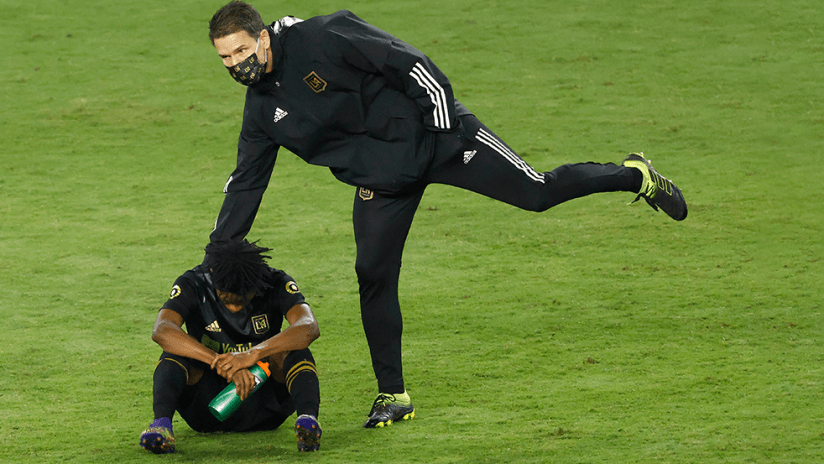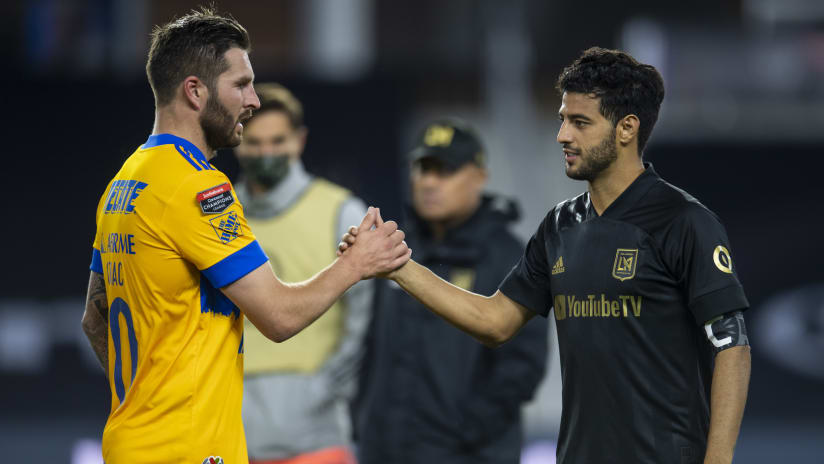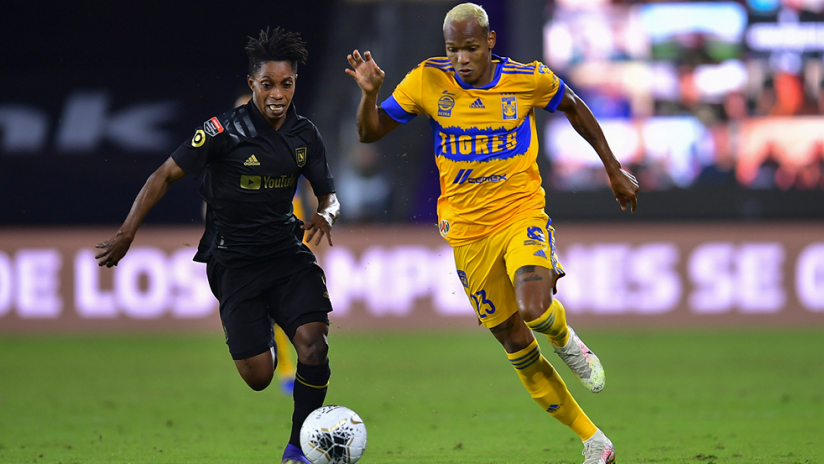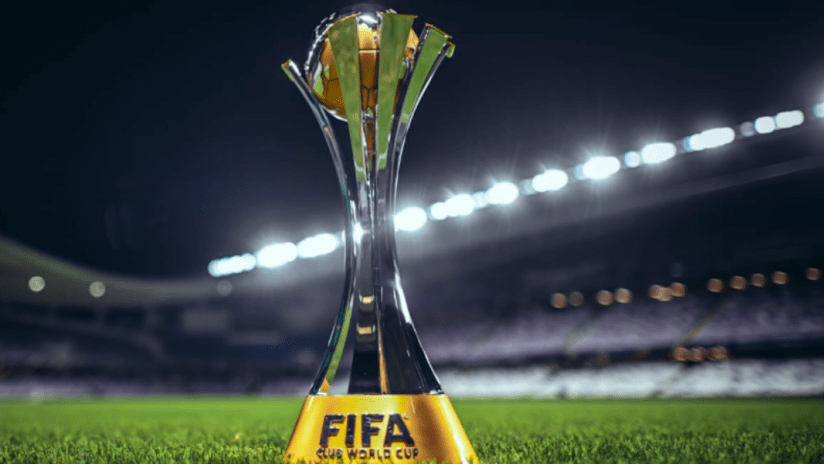LAFC’s Concacaf Champions League final loss to Tigres UANL was, objectively, a hell of a game – a tense, taut saga of a match that could’ve broken in any direction – and it simultaneously felt both unique and deeply familiar.
If you’ve been around MLS long enough to have watched Toronto FC fall to Chivas on PKs in Guadalajara, or the clock strike midnight for the Montreal Impact against Club America at The Big O, or Real Salt Lake come up short when they just needed a single goal at their Rio Tinto Stadium fortress, you know that feeling.
This is a deep-cut reference to an Andrew Wiebe idea of a few Champions Leagues ago, “CCL Bingo”. It was a lot of fun, and its tenets still apply (there were bingo cards and everything). The TLDR version: When MLS teams wade into Concacaf waters, pain is the default setting. And the deeper your run, the worse it hurts when it ends.
LAFC were so, so, so close to getting over that hump. And they got there by doing their thing, tenaciously pressing the big cats in yellow, snapping at their heels and disrupting their patterns, then threading together passes to get the Liga MX giants scrambling in the other direction.
“I thought for 70 minutes we made the game very hard for them,” said Bob Bradley postgame, and he was right.
The lead Diego Rossi’s delicate chip earned them in the 61st minute was a deserved one. Then, as is so often the case for MLS teams in their position, big moments turned on tiny margins in fleeting moments. Carlos Vela’s golden chance to double the advantage went begging in the 65th minute, Hugo Ayala’s glancing reverse header trickled past Kenneth Vermeer and Mark-Anthony Kaye seven minutes later, opening the door for Andre-Pierre Gignac, who does not generally need an invitation to enter.
Highlights: Tigres 2, LAFC 1
On Tuesday’s evidence, it would not be hard to argue that MLS is closing the gap on Liga MX, even if it’s at a painstakingly, agonizingly slow rate. There’s no substitute for trophy hoists in this conversation, however, and Bradley gave it short shrift.
“Those are just not things that I could care less about,” he said when the constant comparison of the two leagues was brought up in his brief postgame presser. “I know those are things everybody wants to write about. Anybody who watches us can judge what our football's all about, what we're about as a club, how we compete, that part of it. We're proud of the way we try to go about things, I say all the time that we're still trying to grow up – tonight’s another night where you have to take this lesson and try to grow from it.”
CCL hurt hits different because there isn’t always “next year.” There isn’t for LAFC, for example; others will represent MLS in continental competition in 2021. The winding, painstaking path to reach the point LAFC did must be trodden all over again, and usually with a different cast of characters.
Will Rossi still be in Black & Gold when that next chance comes around again? How about Kaye, or Eduard Atuesta, or Brian Rodriguez, or Diego Palacios – named Young Player of the tournament – or even Vela, for that matter? We just don’t know, though history tells us many of them will be elsewhere at that point.
Your best chance might be your only chance, and it’s incredibly difficult to keep that awareness aflame in the thick of battle, when you’ve run your lungs off and pushed yourself to the breaking point against exquisitely talented and intelligent opponents like Gignac, Nahuel Guzman and Chaka Rodriguez.
One thing that does seem assured is that LAFC will continue pursuing their lofty ideals of how this sport should be played, of how they go about pushing themselves to become the best version of that they can be.
They were brave, and bold, and committed, and uncompromising throughout this competition. They put themselves in a position to win the continent’s highest honor, and even if they were undone by the small margins in that fleeting seven-minute span, Bradley sees no reason to back down from this high-octane, high-risk, hard-running style.
“You're always trying to add ideas and improve, but the football that we play, we’re proud of. So it's not like all of a sudden you say OK, we've got to change everything,” he said. “When you have a team and you establish a way of playing and you establish an identity, if all of a sudden the game doesn't go your way, or you have a period where you're not quite as good, it’s not like you then say, all right, forget that, we're going to try something different. That's [expletive]. That's not how you ever become a good team.
“You become a good team when you have real football ideas, and everybody's committed to the work and then every time you continue to try to get better, to make players better and then as a team grow, in addition to the football part, the mentality and the ability to compete and play in tough games. So those are the things that I think are happening for us. Every team can decide how they want to do things, how they want to play. We feel very good about what we're doing. And we're going to continue to move forward with that.”














